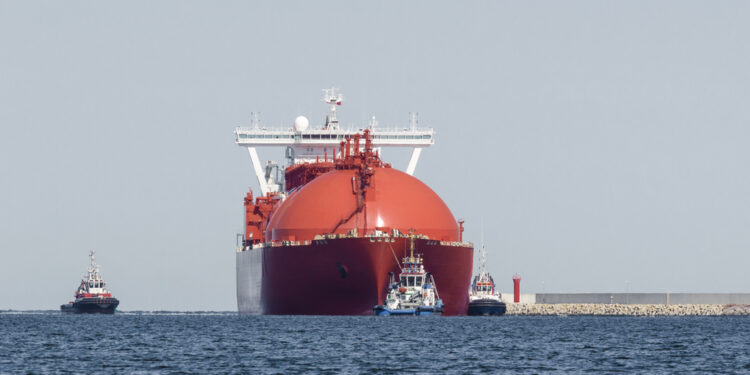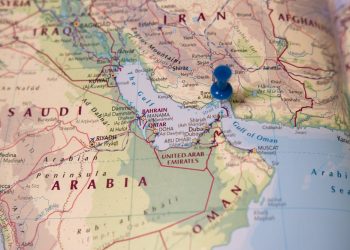The Swedish Club has released the “Sampling Guide for Liquid Cargoes” guide, aimed at reinforcing the importance of adhering to standard sampling procedures for liquid cargo.
The guide underscores the crucial role that proper sampling plays as the best defence against cargo claims. It emphasises that despite the industry’s fast-paced nature, safety and accuracy cannot be compromised. “Skipping steps in the rush to meet deadlines not only jeopardises the ship’s safety, but also places the Master at significant risk,” said Joakim Enström, Senior Loss Prevention Officer at The Swedish Club. Some of the steps presented in the guide include:
Sampling and loss prevention guidelines
Sampling should be conducted to ensure the quality of the cargo. Taking samples is the best defence against cargo claims. There should be procedures for taking samples throughout the cargo operation. The Master should ensure that samples are taken as per industry standards. Any sample points on the vessel that are used must be cleaned according to industry practices. The crew should wear PPE as required in the MSDS sheet. This guide focuses on sampling for hazardous chemicals, edible oils, and petroleum cargoes.
Loss prevention advice
-
Perform a risk assessment before operations commence.
-
The crew must record what samples are taken, including the date, time, personnel involved, and the method used.
-
Adhere to regulatory standards, including MARPOL, SOLAS, Occupational Safety Standards, ISGOTT, IBC Code, and local guidelines.
-
Follow ASTM (American Society for Testing and Materials), ISO, or API (American Petroleum Institute) standards for sampling and testing.
-
The Chief Officer should be involved in all cargo sampling conducted by the crew or any surveyor.
-
The surveyor should be accompanied by the Chief Officer or an officer delegated by the Chief Officer and the sampling crew. Discuss the sampling location and procedure with the surveyor.
-
The crew should take identical samples to the surveyor, using the same method.
-
It is advisable to draw first-foot and after-loading samples on an individual per-tank basis.
-
Take appropriate precautions against static electricity hazards.
-
Ensure final tank samples accurately represent the overall quality of the total volume in the tank.
-
Witness all samples. Do not endorse non-witnessed samples.
-
Issue a Letter of Protest when load port samples are not provided, joint sampling is not conducted, or the terminal does not allow manifold samples.
-
At the discharge port, draw samples from each discharging tank. Draw a manifold sample for visual checks at the commencement of discharge operations.
-
Ensure that the sample tape and sampling equipment are clean to avoid contamination. The equipment should be undamaged, and its electrical continuity tested as per the maker’s instructions.
-
The Master shall verify the details of the samples (size, description, seal numbers, etc.) against the sample report issued to the vessel by the load port surveyor.
Sampling procedures
To protect the shipowner against cargo claims for contamination, the crew must take their own samples. This is vital, as such samples provide owners with representative samples taken by their own personnel. The crew should be competent in checking and verifying the quality of the samples taken.
At the start of the cargo operation, the Shippers’/Charterers’ Surveyors will normally carry out sampling. This usually does not include samples drawn at the vessel’s manifold. Proper procedures should exist for how samples are taken and stored onboard.
Shippers’/Charterers’ Surveyors have no obligation to provide the crew with a sample. It is standard practice at the load port for Charterers to give the Master sealed samples of the delivering shore tank and after-load samples when loading is finished. These samples are not the property of the Master but are for the cargo receiver to confirm cargo quality pre- and post-loading operations. Occasionally, samples for the vessel may be provided, but this cannot be assumed and will rarely include any manifold samples.
Key takeaways
-
Sampling protocols: Draw manifold, first foot, and after-loading samples to detect contamination early. Use joint sampling with surveyors and comply with terminal regulations.
-
Sample storage: Store samples in amber glass or metal containers, keep them in a cool, dry, ventilated location, and ensure weekly checks for inhibitors.
-
Documentation: Maintain a detailed log recording sample origin, type, seal numbers, and storage/disposal history to support claim defence.
-
Bills of lading: Clause bills of lading for observed defects, avoid signing incomplete documents, and secure Letters of Indemnity (LOIs) when necessary.
-
Cargo-specific practices: Follow tailored sampling and storage guidelines for sensitive cargoes like MEG, hazardous chemicals, and petroleum products.































































